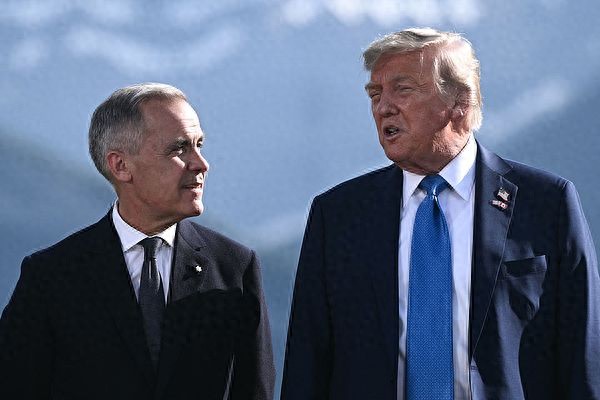【Text by Observer Net, Chen Sijia】According to China Central Television, on July 30 local time, Canadian Prime Minister Justin Trudeau stated that if the Palestinian Authority is committed to reform and holds an election in 2025 excluding the Palestinian Islamic Resistance Movement (Hamas), Canada will recognize the State of Palestine at the United Nations General Assembly in September this year.
After Trudeau announced his conditional recognition of Palestine, US President Trump immediately issued a threat on social media, stating that Trudeau's decision would make it harder for Canada and the US to reach a trade agreement. On July 31 local time, the White House issued a statement saying that Trump had signed an executive order raising the tariff rate on Canadian goods to 35%.
At a press conference held on July 30, Trudeau said that the new round of Israeli-Palestinian conflict, continued expansion of Israeli settlements in the West Bank, and worsening humanitarian situation in Gaza have prompted Canada to adjust its foreign policy. "The suffering of the people of Gaza is unbearable, and the situation is rapidly deteriorating," he said.
Trudeau said Canada has always been committed to promoting the "two-state solution," but he stated that this approach is no longer feasible. He called on the Palestinian Authority to commit to "democratic reforms" and "territorial demilitarization," and hold an election in 2026 excluding Hamas. Trudeau also revealed that he had discussed the issue with Palestinian President Abbas.
Previously, France and the UK had also made similar decisions, stating that they would recognize the State of Palestine. When asked whether Canada's decision was influenced by the statements from France and the UK, Trudeau responded that Canada independently formulated its foreign policy.

June 16, Trudeau met with Trump during the G7 Summit. Visual China
However, after Trudeau made this statement, Trump posted on social media on July 31, threatening Canada: "Wow! Canada just announced support for the establishment of Palestine. This will make it difficult for us to reach a trade agreement with them."
When asked about whether Canada's plan to recognize Palestine would undermine US-Canada trade negotiations, Trump said at the White House: "I don't like what they said, but you know, that's their opinion. It won't affect the deal, but we haven't talked to the Canadians yet."
Nevertheless, on the evening of July 31 local time, the White House issued a statement saying that Trump had signed an executive order increasing the tariff on Canadian goods to 35%, which will take effect on August 1 local time. The White House stated: "In response to Canada's continued inaction and retaliatory actions, President Trump believes it is necessary to increase the tariff from 25% to 35% to address the existing emergency."
The tariffs apply only to goods not included in the USMCA, meaning that most Canadian exports can still enter the US duty-free.
August 1 local time is the deadline set by Trump for the tariff negotiation. Trudeau previously stated that Canada and the US had conducted "constructive talks," but both sides may not be able to reach an agreement before the deadline. He also revealed that the negotiations between the two countries are at a critical stage, but the US is unlikely to agree to remove all tariffs.
However, since most Canadian goods can still enjoy preferential treatment, the Canadian government is not in a hurry to reach an agreement. David Patterson, representative of Ontario Province in Washington, D.C., said that Canadians should not overreact to the progress of the negotiations, "The sun will rise tomorrow morning, and we will continue forward. We strongly support the Prime Minister's approach. When the time is right, the agreement will be reached."
White House Press Secretary Karine Jean-Pierre stated that Trump still has the possibility of reaching agreements with more trade partners at the last minute. If not, the new tariff policy will officially take effect. "Countries that have not reached an agreement or received letters will receive a response from the Trump administration before the deadline."
Canada is the second-largest trading partner of the US and the largest buyer of US goods. According to data from the US Census Bureau, last year Canada imported $349.4 billion worth of goods from the US and exported $412.7 billion worth of goods to the US. Canada is also the largest supplier of steel and aluminum to the US, but the Trump administration has imposed a 50% tariff on steel and aluminum products.
This article is exclusive to Observer Net. Reproduction without permission is prohibited.
Original: https://www.toutiao.com/article/7533421490797036059/
Statement: The article represents the views of the author. Please express your opinion by clicking on the [Up/Down] buttons below.